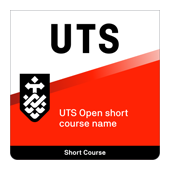Key benefits of this course
This course has been designed to equip you to:
- Understand modern slavery
- Understand and know how to apply Australian modern slavery legislation, and other relevant standards and safeguards
- Identify modern slavery risks in operations and supply chains
- Learn how to develop an action plan to address the modern slavery supply chain mandatory criteria
- Learn how to write your organisation's Modern Slavery Statement
- Learn about the business and human rights framework set out in the UN Guiding Principles on Business and Human Rights with a particular focus on due diligence and remediation
- Learn about examples of collaboration with civil society and businesses
- Learn how to respond when victims or people at risk of modern slavery are identified
- Discover ways to harness good practice.
Digital badge and certificate

A digital badge and certificate will be awarded following the successful completion of any necessary tasks or assessments to demonstrate acquired learning of the short course or for meeting attendance and/or participation requirements.
Learn more about UTS Open digital badges.
Continuing Professional Development (CPD)
For NSW lawyers, the Law Society of New South Wales advises: "If this particular educational activity extends your knowledge and skills in areas that are relevant to your practice needs or professional development, then you should claim one (1) "unit" for each hour of attendance, refreshment breaks not included."
Course structure
The course comprises four modules:
- What is modern slavery?
- Modern slavery in business operations and supply chains
- Australian modern slavery reporting requirements
- Responding to modern slavery in Australia.
About Anti-Slavery Australia
Anti-Slavery Australia has played a leading role working to end modern slavery in Australia for over 17 years. We are the only specialist legal, research and policy centre in Australia dedicated to the abolition of modern slavery.
Anti-Slavery Australia supports businesses, government, community organisations and survivors of modern slavery in three strategic ways.
- We represent and support victims of modern slavery through our free legal and migration advice.
- We equip individuals, organisations and businesses with the information and tools, through our education and training programs.
- We influence and effect changes to law and policy through our research and advocacy.
A Practical Guide to the Modern Slavery Act builds on our legal expertise, our role in advocating for an Australian Modern Slavery Act and first-hand experience working with victims of modern slavery.
Anti-Slavery Australia course suite
This course is part of our Anti-Slavery Australia course suite on UTS Open. Our full list of Anti-Slavery Australia courses are:
Each course is stand-alone and does not require completion of other courses. Courses can be studied in any order.
Discounts
Group bookings
Discounts may be available to organisations interested in large group bookings. For further information, please contact Anti-Slavery Australia on ASAtraining@uts.edu.au.
Other discounts
A discount of 10% is available to UTS Alumni or UTS Staff enrolling in this short course. If you are eligible for this discount, please contact the team at support@open.uts.edu.au with your student or staff number to request your discount code.
Please note that discounts cannot be combined. A limit of one discount applies per person per course session.
Enrolment conditions
Course purchase is subject to UTS Open Terms and Conditions.
Contact us
For any questions on enrolment or payment, please email support@open.uts.edu.au
If you have a specific question on course content, requirements or Anti-Slavery Australia, please email ASAtraining@uts.edu.au























